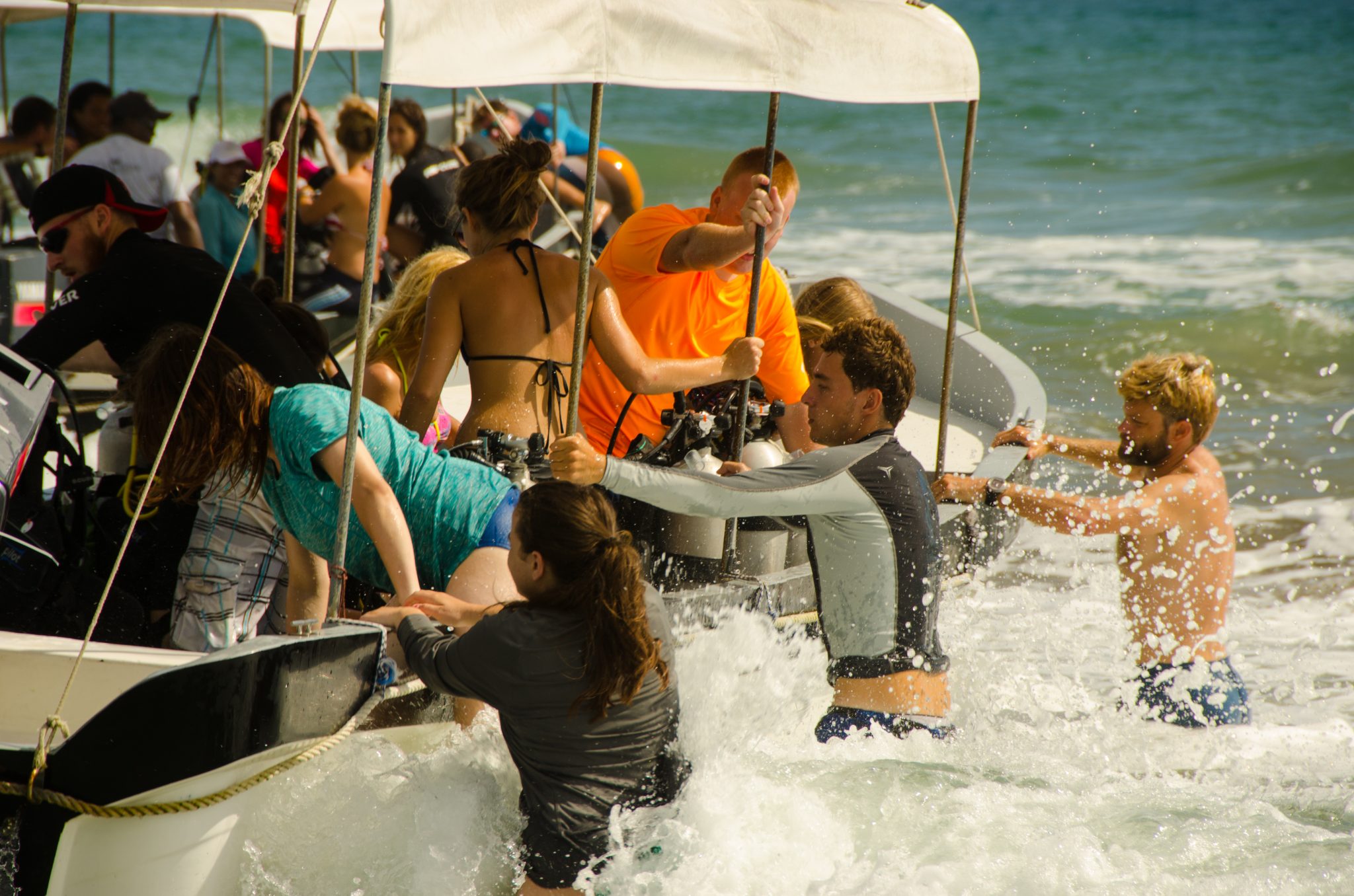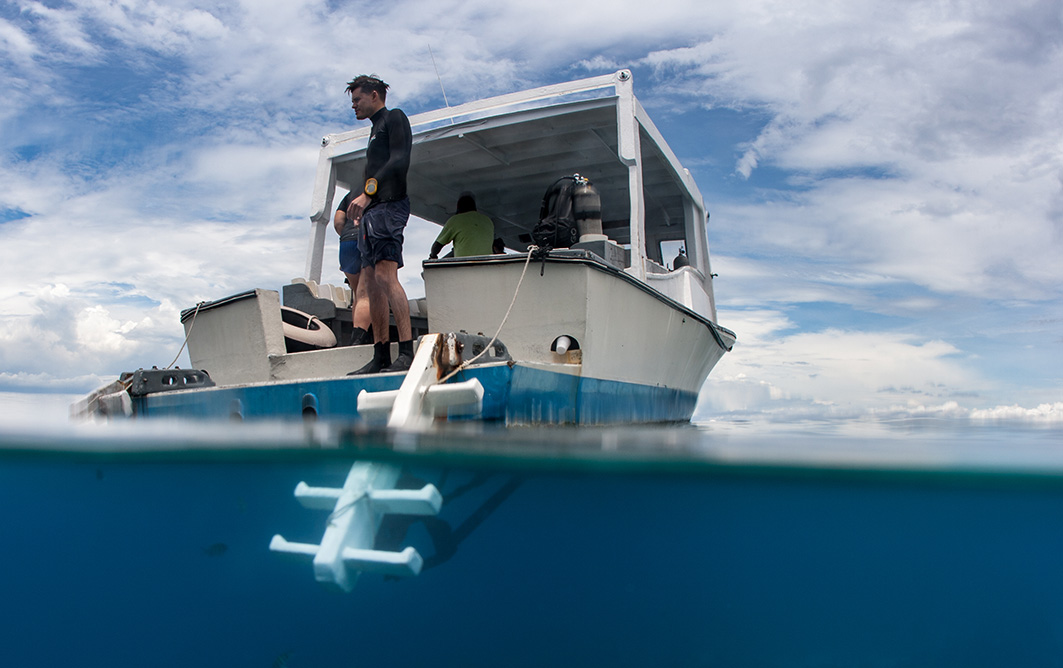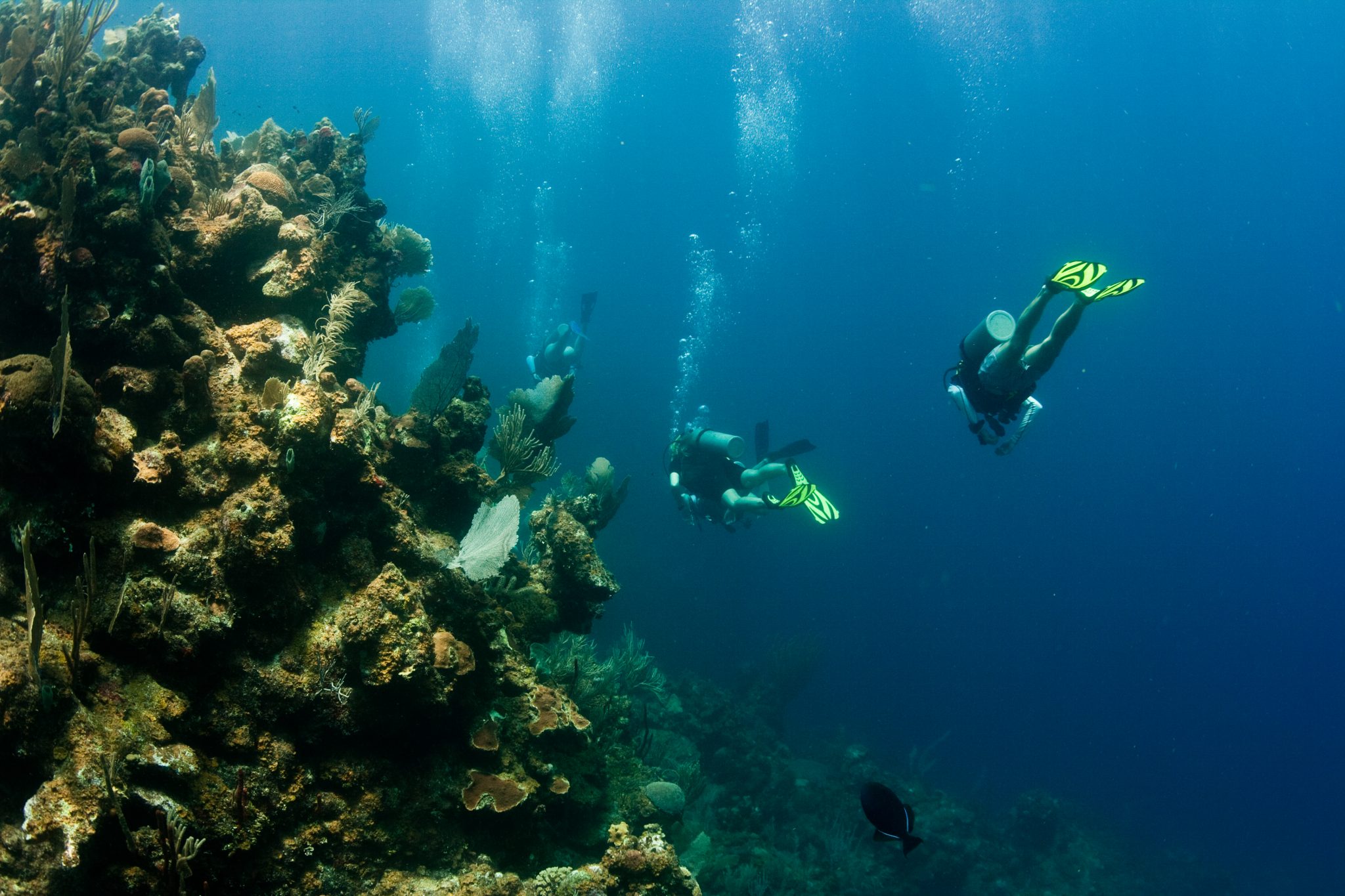

I look back at my season in Honduras as the Marine Site Manager as the most significant couple of months in my life so far. That is no overstatement. Coming into it I had no full-time job and no clear path to working within conservation, now I have a fulltime position with OpWall and have the chance to go on further seasons with them. The opportunities working an OpWall season presents you are so valuable, whether that be taking on new and challenging situations, collaborating with academics or experiencing breathtaking wildlife encounters.
Here is an example of one my days on site, and my top tips too!

Photo by Alex Tozer
05:25 – Wake up early! Maybe it wasn’t the best idea to suggest organising the students’ dive gear before breakfast….
05:30 – Unlock the kit room to let sleepy staff in. Staff set about preparing BCDs, regulators, masks and fins into kit bundles for students.
05:31 – Tell a joke to staff about “two penguins sitting at a bar” which no one laughs at. ☹
05:35 – Remember that we have a speaker and hope music will land better than bad jokes.
05:55 – After 20 minutes of dancing, singing and preparing kit bundles to songs I don’t know, the kits are all set and it’s time for some food!
06:05 – We have breakfast in the main restaurant of the Dive Center which sits on wooden stilts over the sea. It’s a nice place to eat! The food is out but there is a severe lack of colour so it’s time to haggle with the kitchen team in broken Spanish for some bananas.
06:10 – Bananas arrive, a collapse in group morale has been successfully averted!
06:20 – Now all the students have their food, it’s time to go round and check in on how they are doing and if any issues arose from the night before. Everyone is happy and wants to eat their food in peace. Time to eat my breakfast!
07:00 – Students walk to the kit room, line up outside and collect their kit from the staff.
07:30 – The students set up all their dive equipment on the Tiburon (our dive boat) and are ready to set out on a morning dive.
07:35 – The boat is setting off, I know the students won’t fully enjoy the dive unless they see their site manager waving them off in the style of a blow-up man

08:00 – Now it’s time to spend the next 2 hours drinking coffee, making sure all my paperwork is up to date and running any errands in town so that the site can run as smoothly as possible.
10:00 – The boat returns with all the students on board, I celebrate their arrival with another waiving man. The boat docks up and the Divemasters jump onto dock and tie the boat up. The captain gets a round of applause, and the students and staff remove all the kit from the boat to be washed and put away.
11:00 – We have lunch during which I make an a few announcements, such as “the evening activity has been moved to classroom 3” and “just to remind you please don’t block the toilets with loo roll”.
11:30 – The dive operations manager tells me that one of the research assistants cannot dive and that I need to jump in on the next dive. That’s such a shame as I was so looking forward to doing some more paperwork!
12:00 – The boat sets off for the second dive of the day and I choose a student to go round the boat and perform the vital task of giving a high five to every person on board.

Photo by Matt Bassett
12:30 – I stride into the water with my buddy and descend. We are quickly greeted by a stunning eagle ray. We try not to get too distracted…we have a job to do. While Nadia films the reef, I follow by laying down a 50 meter transect tape. When we reach 50m we turn around and I swim in front filming the reef below. Nadia follows me laying down cameras at regular intervals. After these cameras have filmed for 20 minutes or so we come back pick up the cameras and wind the tape in and then we come back up to the boat.
13:30 – We arrive back at the dock, clean up our dive gear and as the students come to the kit room window, I ask them what they saw on their dive and how they found the day. While I do this the staff take their kit and help dismantle it.
14:30 – After we’ve all showered and cleaned up, I sit down with the teachers from the school and discuss how the week has been so far and if they’ve got any advice or anything they want to change moving forward.
15:00 – Now I add any information the teachers have given me to my school summary report and finish up any paperwork I am still yet to do for the day.
18:00 – Dinner time! After making sure that everyone is happy with what they’ve got, and I make some more announcements and remind everyone of the presentation about marine sponges we have this evening at 19:00.
19:00 – I had no idea barrel sponges filter thousands of litres of water per day – amazing!
19:30 – Time to sit on the dock and watch thunder and lightning hitting the mountains of mainland Honduras while enjoying a Salva Vida.

Photo by Dan Exton
For anyone planning on joining OpWall as a site/camp manager my three top tips would be:
Good luck, and hope you have the best summer ever too!
Social Media Links